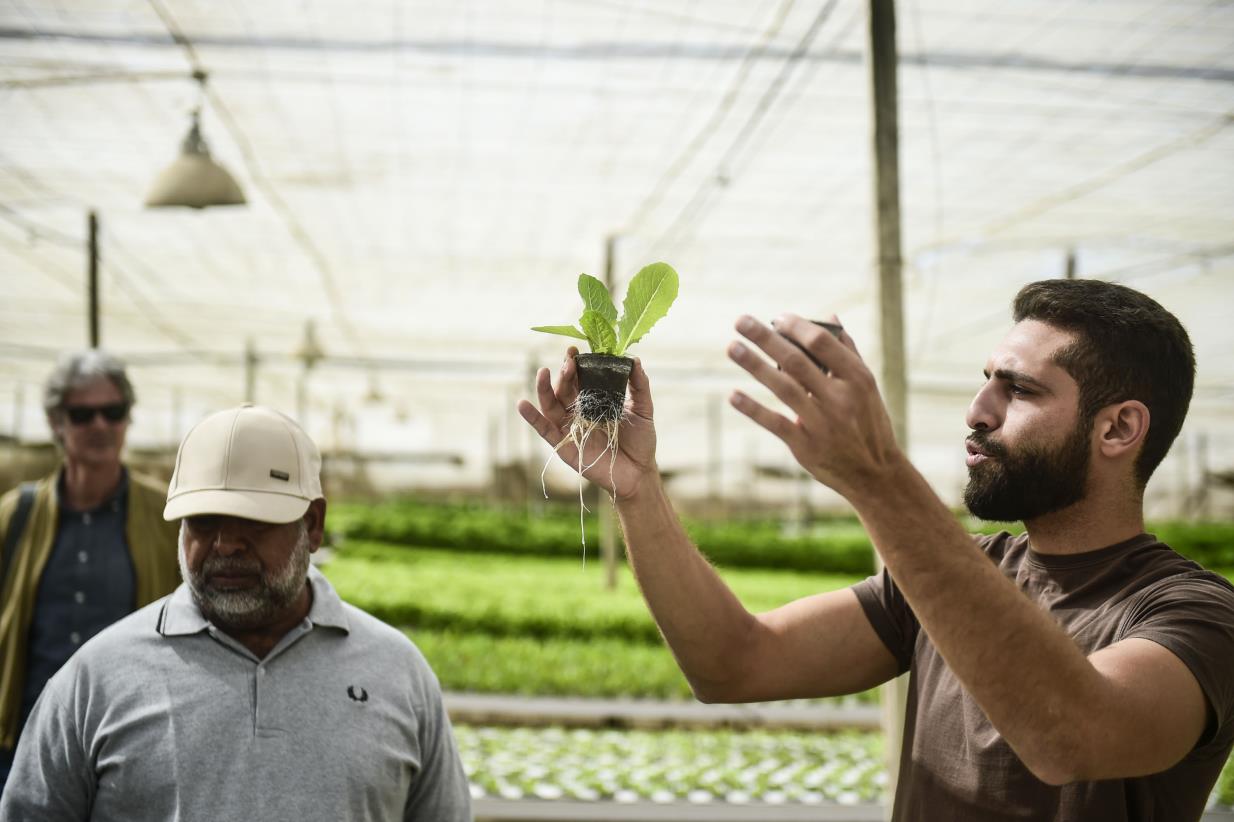Agribusiness entrepreneurs are key drivers of developing sustainable food systems in the Arab region

30 July 2023, Cairo - The new Food Policy Bulletin for the Near East and North Africa region focuses on agricultural entrepreneurs who are key drivers in developing sustainable food systems and agro-industry growth. They are the market movers who take risks, create jobs and income and stimulate rural development. With their innovations, they can also help protect the scarce water and land resources in the region and bring positive social change, such as gender and youth empowerment.
“The bulletin presents FAO’s work and projects in the Arab region that support agrifood entrepreneurs by promoting access to critical resources, such as credit and finance, business services, and technology”, said Dr. Abdulhakim Elwaer, Assistant Director-General and Regional Representative. “FAO also helps to advance entrepreneurial business and digital skills and develop digital innovation hubs in the region," he further noted.
The bulletin continues to monitor international and regional food prices and crop conditions and gives an overview of recent food policy developments. Although international commodity and food prices declined considerably in the past year, domestic food price inflation remains high in many countries of the Arab region, partly due to domestic currency depreciation and continued high energy, transportation, and insurance costs. Due to droughts, lower wheat production is foreseen in Northern Africa, which will increase import demand. In addition, the termination of the Black Sea Grain Initiative poses price and supply risks for the Arab region, which has traditionally depended on imports from the Black Sea region.
Due to high food prices, some countries have increased food subsidies. However, increasing public debt levels are narrowing the financial space of countries in the region to maintain price support of basic food and safeguard social safety net measures. High feed prices erode the profit margin of agricultural producers. Thus, in other cases, food prices were increased to safeguard the livelihood of smallholder farmers. Lifting the value-added tax on agricultural inputs aimed at lower food prices. Some countries continued applying export bans to support domestic food supply, while others introduced trade defense instruments to protect domestic producers from unfair foreign trade practices.
Countries of the Arab region have continued implementing policies to increase the sustainability and resilience of their agrifood systems, such as increasing water security; investing in sustainable food projects, modern agricultural technologies, and green seaports; promoting sustainable farming and supply chains. Recent private innovations, such as plant-based meat, also enhance the sustainability of regional food systems.
The previous edition of the bulletin was issued in May 2023.
